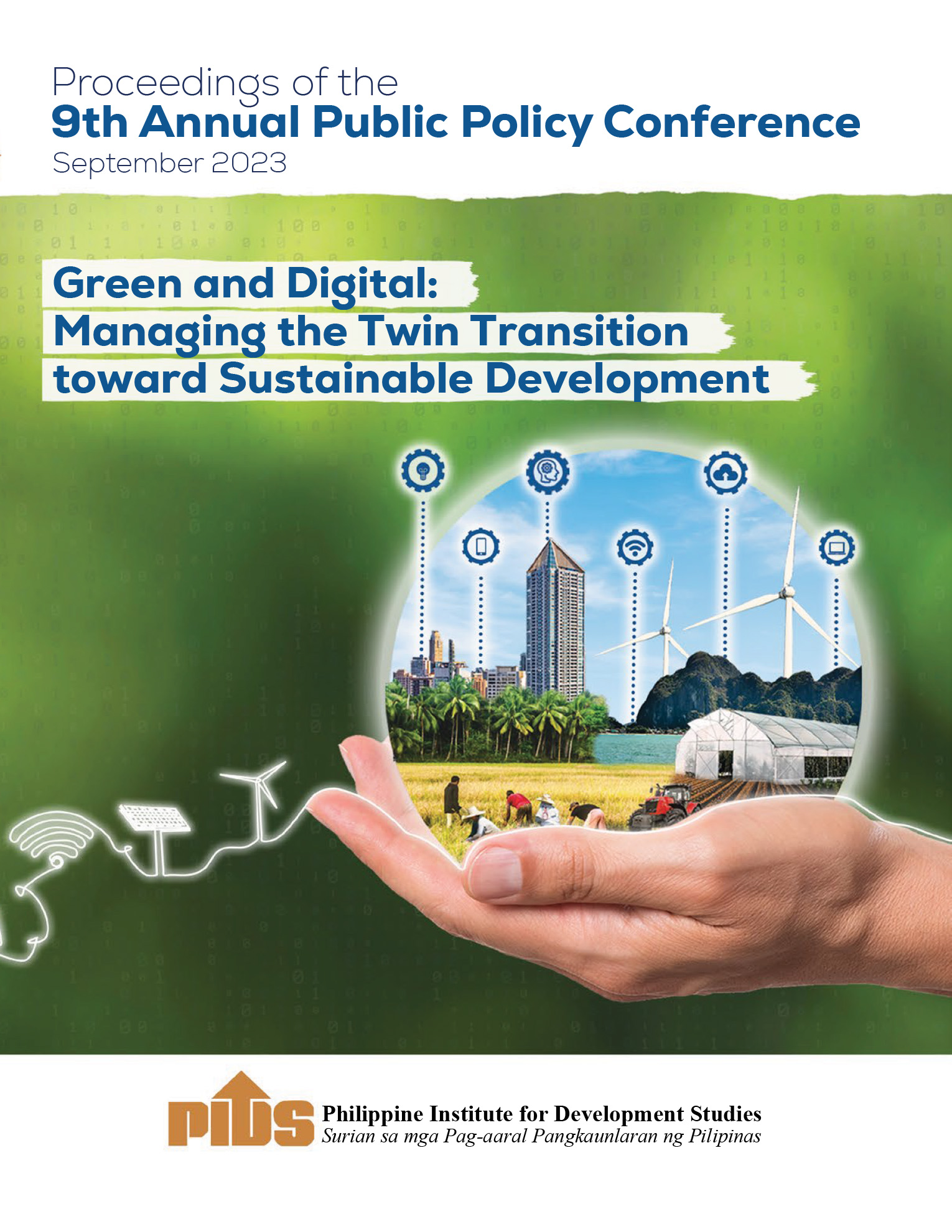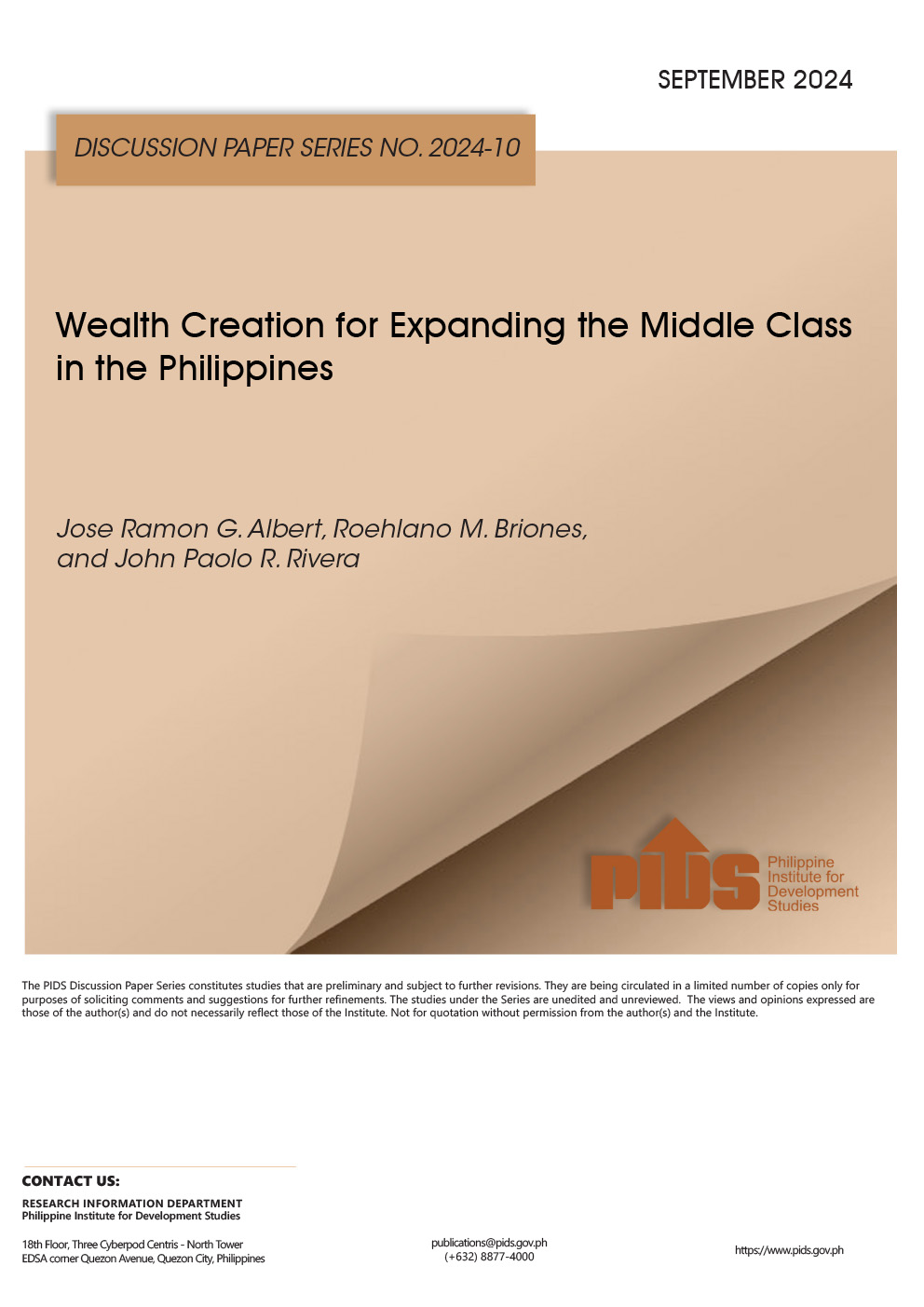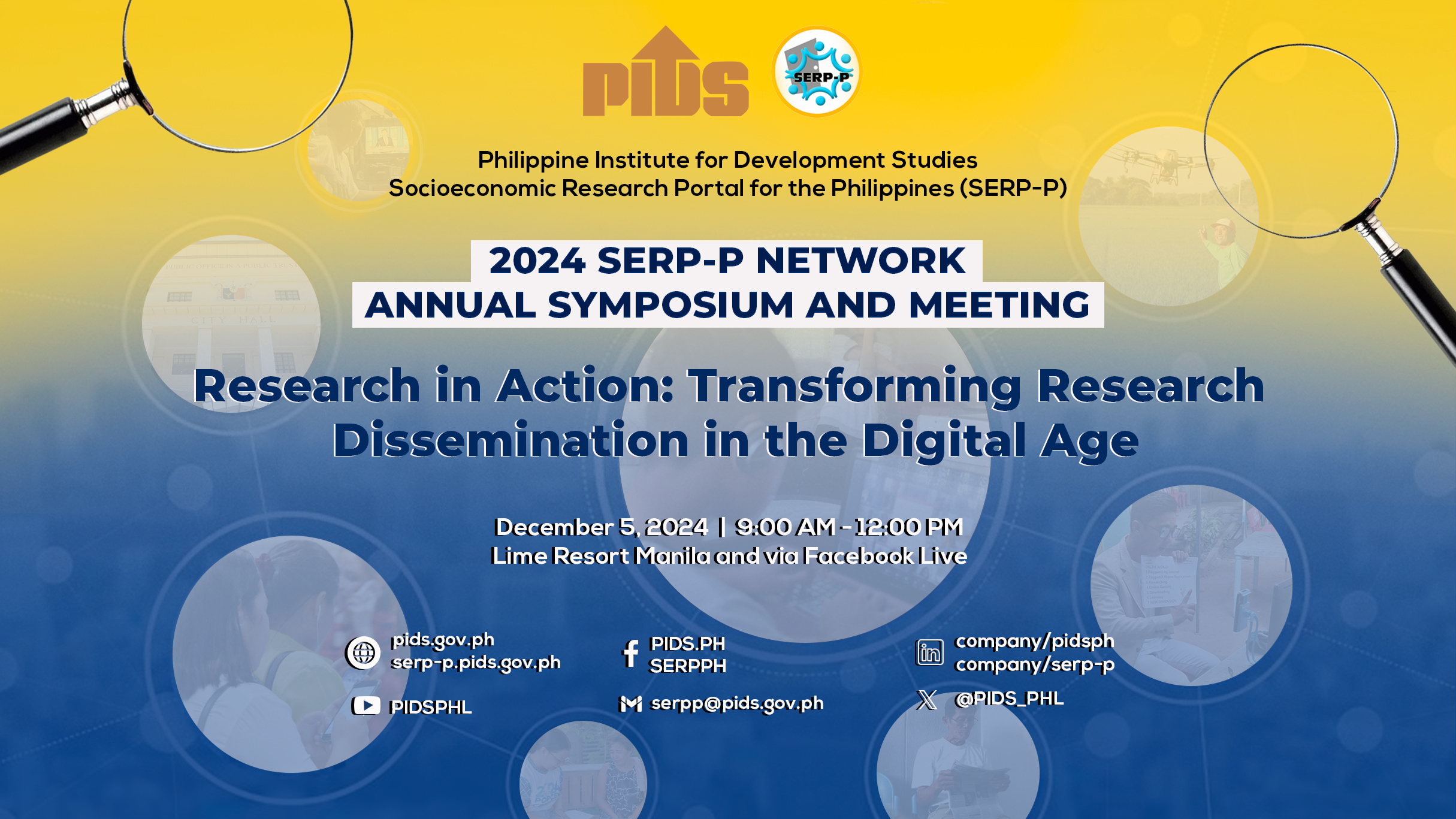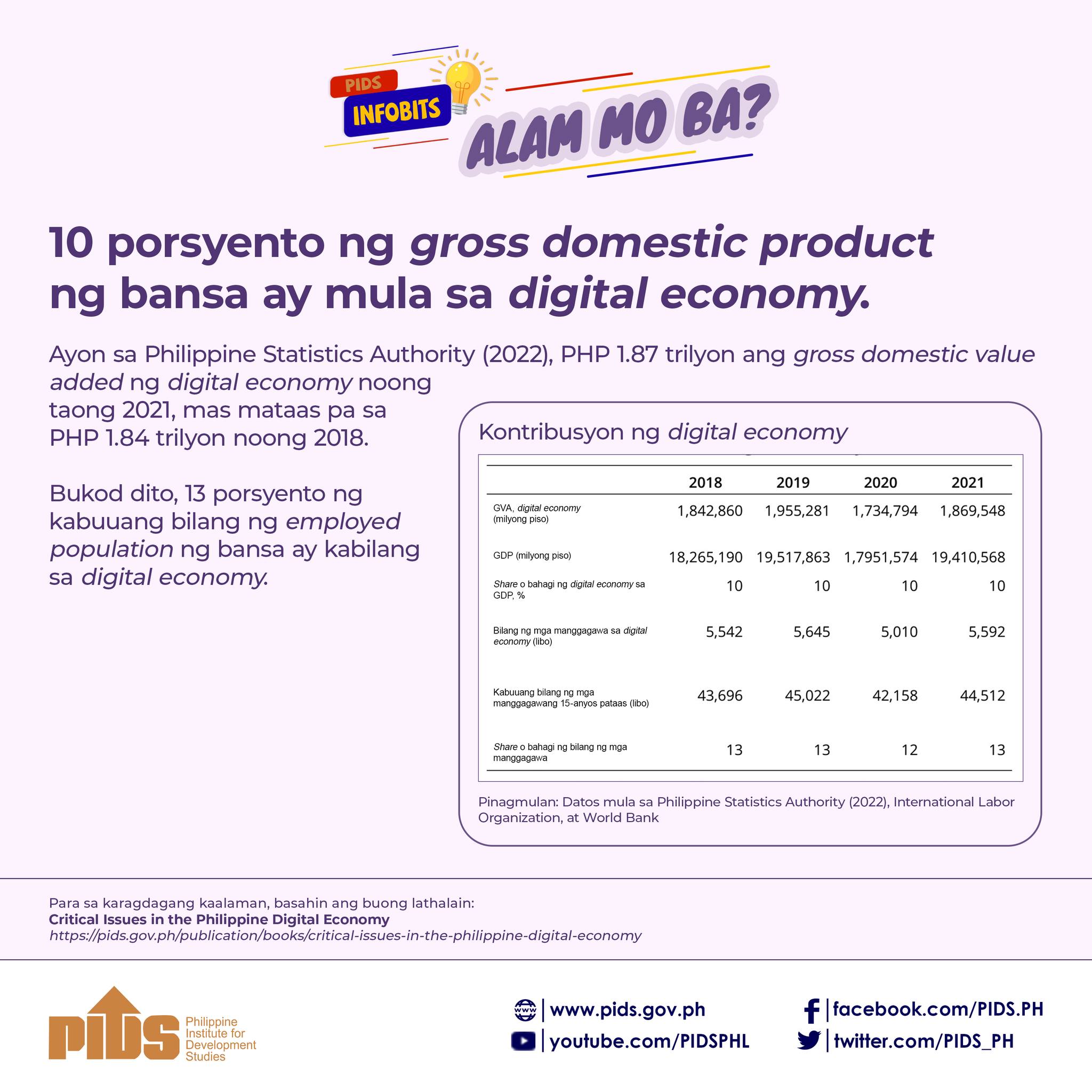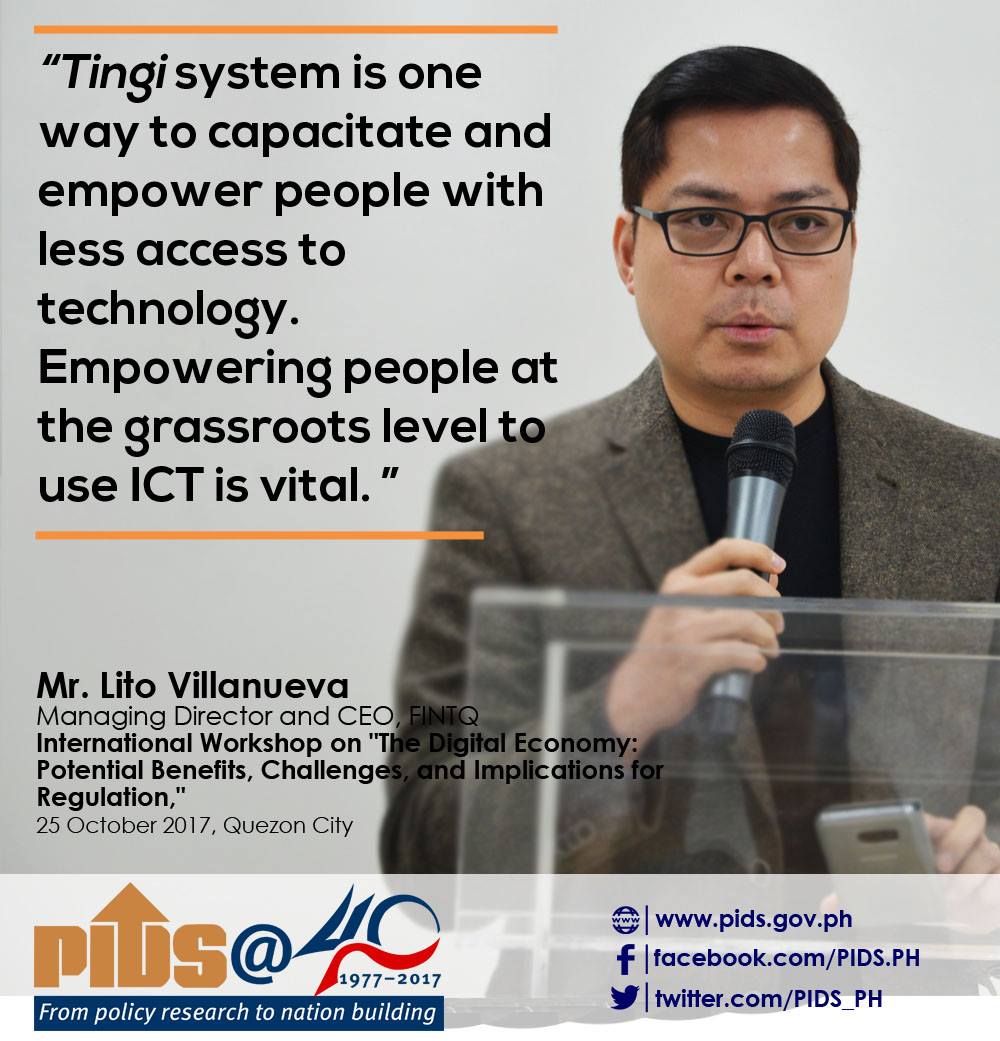
In the age of digital economy, no one should be left behind.
This was according to advocates who spoke at the seminar on “The Digital Economy: Potential Benefits, Challenges, and Implications for Regulations” jointly organized by the Philippine Institute for Development Studies and India-based Consumer Unity and Trust Society (CUTS) International.
On the finance aspect, for example, Lito Villanueva, managing director of PLDT’s financial-technology arm FINTQ, said that while the 2017 Brookings Financial and Digital Inclusion Project ranked the Philippines high in three dimensions of financial inclusion—country commitment, mobile capacity, and regulatory environment—it has to improve in the areas of adoption of digital and financial services.
Specifically, Villanueva said the country needs to provide Filipinos with easier access to formal financial services so that informal lenders and lending, which do Filipinos more harm than good, can be lessened.
“Having no access to formal financial services would make them susceptible to tapping their families, relatives, and friends for a loan, pawnshops, or usurious money lenders,” Villanueva explained.
Capitalizing on the digital era, he also introduced their lending program, “Kasama Ka Community & Income Builder”. The program, which uses digital platforms like computers and mobile phones, aims to encourage “underserved” Filipinos to avail of the different financing services provided by Lendr.com.ph–a one-stop shop for loans. It also provides additional income to those who can refer others to avail of its various loan products.
“These efforts must be on ground, scalable and targeted. Ang tunay na aksiyon ay nasa komunidad, kung paano lalo pa nilang mararamdaman ang mga benepisyong hatid ng teknolohiya,” Villanueva explained.
Meanwhile, the advantages of adopting a digital economy should also be considered in the health sector. Director of UP-Manila National Telehealth Center Raymond Sarmiento emphasized the need for the government to strengthen its efforts in shifting to more digitized systems to be able to provide efficient health services to Filipinos.
The government, Sarmiento said, should invest in big data and analytics to “improve the access to quality health care and decision-making by having quality data that can be collected, stored, utilized, and disposed of afterwards”. Part of this, he pointed out, can be done by using electronic medical records for health facilities and by investing in surveys and administrative data which can be used as basis for improving delivery of services.
At present, Sarmiento explained that the government has already started its digitization efforts by establishing the national e-health steering committee that oversees the implementations and strategies on e-health initiatives. The plans for having the Philippine Health Information Exchange, which aims to seamlessly integrate health records and other related data for continuity, accuracy, and efficiency, are also ongoing, he said.
However, Sarmiento warned that these efforts should take into consideration the concerns on data privacy, emphasizing that stakeholders have to carefully plan on how to go about the said projects without compromising the security, safety, and privacy of Filipinos. ###
This was according to advocates who spoke at the seminar on “The Digital Economy: Potential Benefits, Challenges, and Implications for Regulations” jointly organized by the Philippine Institute for Development Studies and India-based Consumer Unity and Trust Society (CUTS) International.
On the finance aspect, for example, Lito Villanueva, managing director of PLDT’s financial-technology arm FINTQ, said that while the 2017 Brookings Financial and Digital Inclusion Project ranked the Philippines high in three dimensions of financial inclusion—country commitment, mobile capacity, and regulatory environment—it has to improve in the areas of adoption of digital and financial services.
Specifically, Villanueva said the country needs to provide Filipinos with easier access to formal financial services so that informal lenders and lending, which do Filipinos more harm than good, can be lessened.
“Having no access to formal financial services would make them susceptible to tapping their families, relatives, and friends for a loan, pawnshops, or usurious money lenders,” Villanueva explained.
Capitalizing on the digital era, he also introduced their lending program, “Kasama Ka Community & Income Builder”. The program, which uses digital platforms like computers and mobile phones, aims to encourage “underserved” Filipinos to avail of the different financing services provided by Lendr.com.ph–a one-stop shop for loans. It also provides additional income to those who can refer others to avail of its various loan products.
“These efforts must be on ground, scalable and targeted. Ang tunay na aksiyon ay nasa komunidad, kung paano lalo pa nilang mararamdaman ang mga benepisyong hatid ng teknolohiya,” Villanueva explained.
Meanwhile, the advantages of adopting a digital economy should also be considered in the health sector. Director of UP-Manila National Telehealth Center Raymond Sarmiento emphasized the need for the government to strengthen its efforts in shifting to more digitized systems to be able to provide efficient health services to Filipinos.
The government, Sarmiento said, should invest in big data and analytics to “improve the access to quality health care and decision-making by having quality data that can be collected, stored, utilized, and disposed of afterwards”. Part of this, he pointed out, can be done by using electronic medical records for health facilities and by investing in surveys and administrative data which can be used as basis for improving delivery of services.
At present, Sarmiento explained that the government has already started its digitization efforts by establishing the national e-health steering committee that oversees the implementations and strategies on e-health initiatives. The plans for having the Philippine Health Information Exchange, which aims to seamlessly integrate health records and other related data for continuity, accuracy, and efficiency, are also ongoing, he said.
However, Sarmiento warned that these efforts should take into consideration the concerns on data privacy, emphasizing that stakeholders have to carefully plan on how to go about the said projects without compromising the security, safety, and privacy of Filipinos. ###


